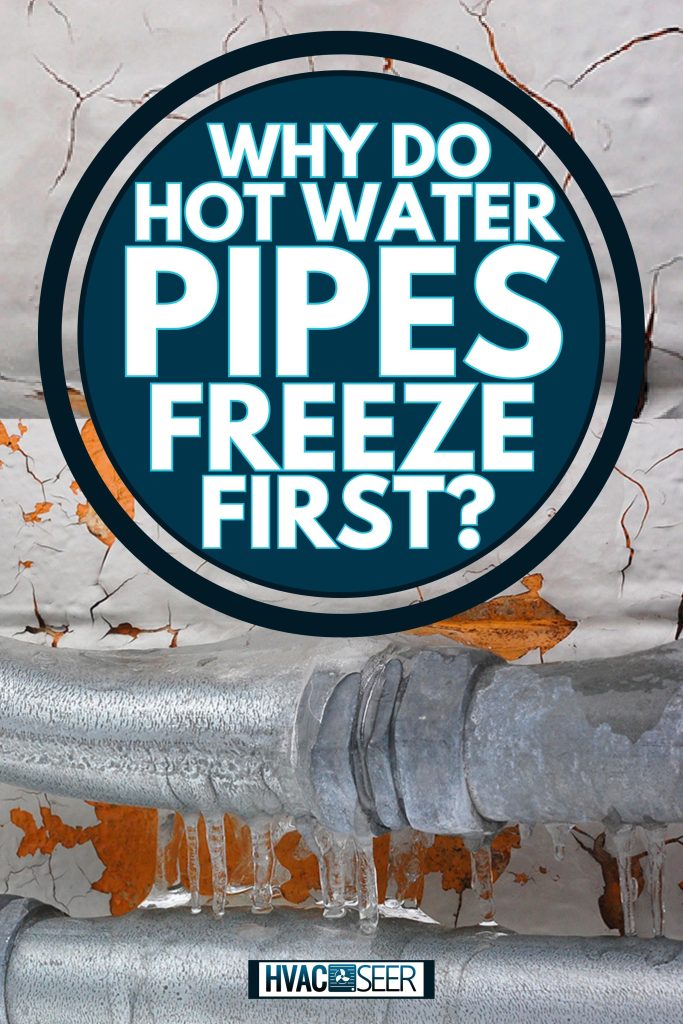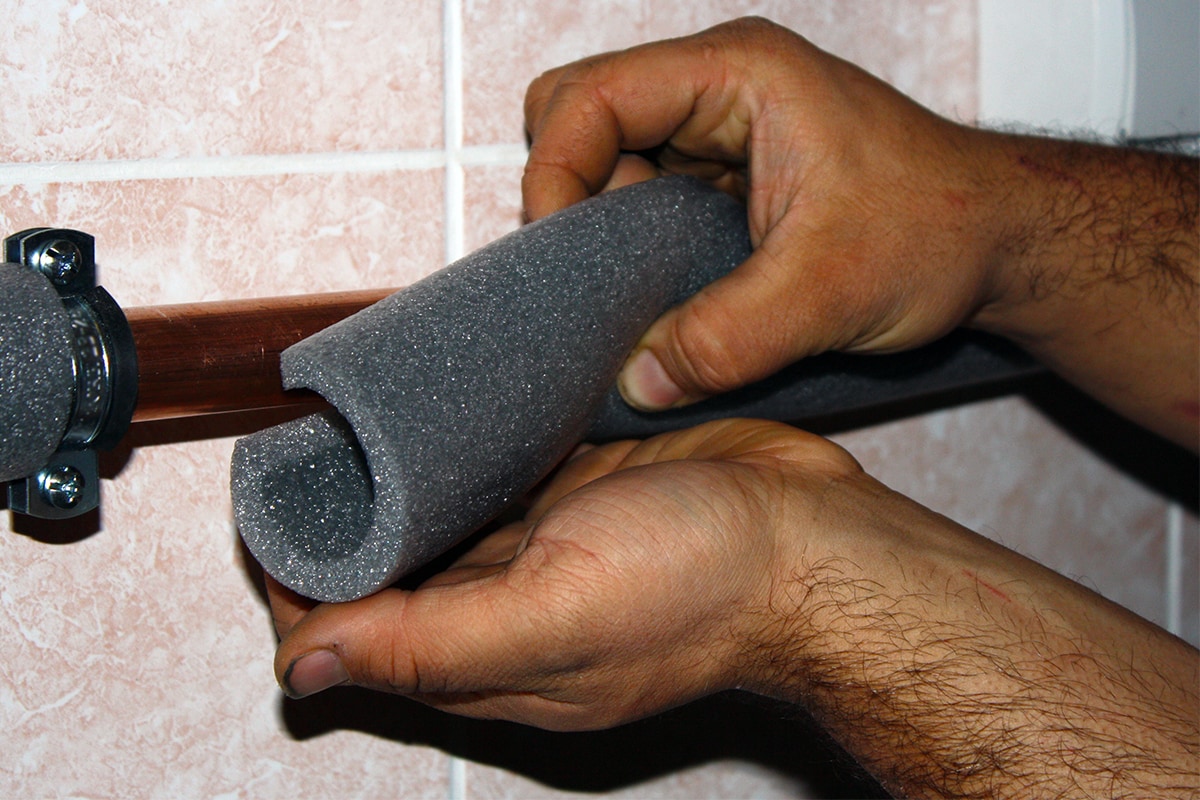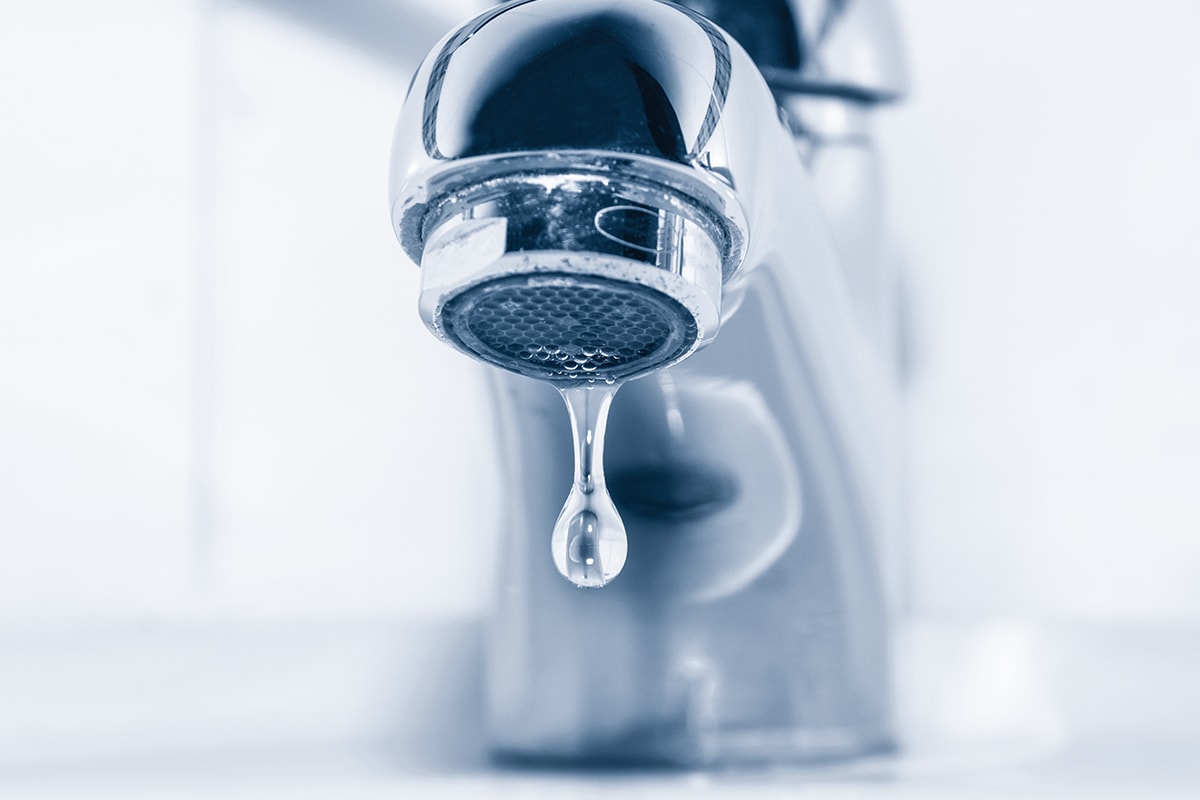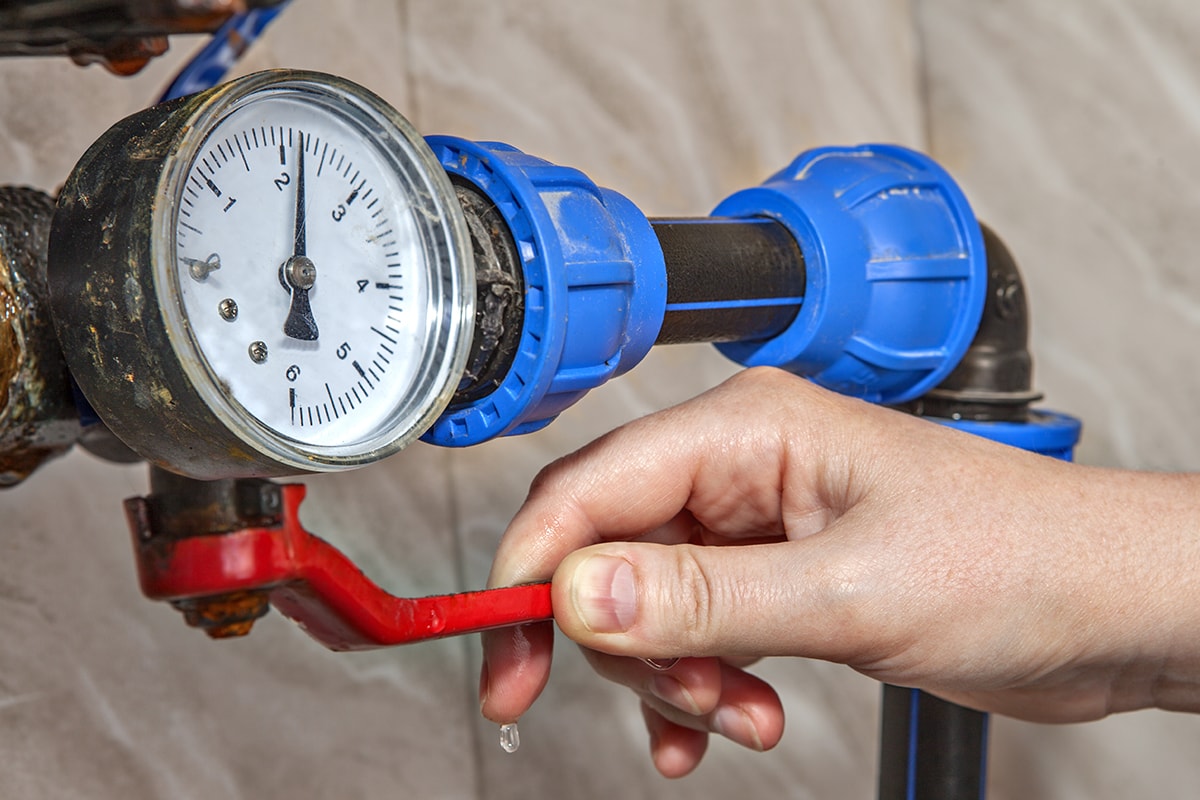Imagine this scenario: it's a frigid winter morning, and you're getting ready for work. You turn on the hot water in the shower, but instead of a relaxing stream, you're met with silence.
You check the faucet and notice that the hot water pipes have frozen. You're left with no choice but to take a cold shower, and you can't help but wonder—why do hot water pipes freeze first?
If you've ever found yourself in a similar situation, you're not alone. Many homeowners have experienced the frustration of frozen pipes, and the question of why hot water pipes freeze first is a common one. Luckily, we have the answer.
In this article, we'll delve into the science behind why hot water pipes freeze first. We'll explore the various theories and factors that contribute to this phenomenon.
By the end of this article, you'll have a better understanding of why it happens and what you can do to prevent it. So, let's get started!

What Causes Pipes to Freeze?
Understanding why hot water pipes freeze first requires an understanding of what causes pipes to freeze in the first place.
There are several factors that contribute to frozen pipes, including:
Temperature Drops
When the temperature drops below freezing, water inside the pipes can freeze, causing the pipes to expand and potentially burst. This is more likely to occur in areas of the home that are not heated, such as basements, attics, or crawl spaces.
Additionally, pipes that are located near exterior walls or in areas with poor insulation are more susceptible to freezing due to the colder temperatures.
Insufficient Insulation
Pipes that are not properly insulated are more likely to freeze. Insulation helps to keep the heat inside the pipes, preventing the water from freezing. If your pipes are not insulated or if the insulation is damaged or worn out, it can increase the risk of frozen pipes.
Water Flow
If water is not flowing through the pipes, it can increase the risk of freezing. This can occur if you have a leak or a clog or if you turn off the water supply to a particular area of your home.
If the water in the pipes remains still for an extended period, it can become stagnant and more prone to freezing.
By understanding what causes pipes to freeze, you can take steps to prevent it from happening. Proper insulation, maintaining a consistent temperature, and ensuring that water is flowing through the pipes can all help to reduce the risk of frozen pipes.
Why Do Hot Water Pipes Freeze First?
Have you ever wondered why hot water pipes freeze before cold water pipes? This phenomenon, known as the Mpemba effect, has puzzled scientists for years.
While there is no single definitive answer, there are several factors that contribute to this phenomenon.
Heat Transfer
Heat transfer is one of the main reasons why hot water pipes freeze first. Hot water has a higher temperature than cold water, which means it loses heat faster to the surrounding environment. As a result, hot water pipes are more susceptible to freezing than cold water pipes.
Additionally, hot water pipes tend to be located closer to the exterior of a building, where the temperature is lower. This further increases the rate of heat loss, making hot water pipes more likely to freeze.
Distance from Heat Source
The distance from the heat source is another factor that contributes to the freezing of hot water pipes.
Hot water pipes are often located farther away from the heating source than cold water pipes. This means that hot water has to travel a longer distance before it reaches its destination, which allows more time for the water to cool down and freeze.
Water Flow
The flow of water through pipes can also affect the freezing process. When water is flowing through a pipe, it is less likely to freeze because the movement of the water helps to prevent ice from forming.
However, hot water tends to flow more slowly than cold water, which means that it is more likely to freeze in the pipe.
Overall, there are several factors that contribute to the freezing of hot water pipes. While it may seem counterintuitive, hot water pipes are actually more likely to freeze than cold water pipes.
By understanding these factors, you can take steps to prevent your hot water pipes from freezing and avoid costly repairs.
How to Prevent Frozen Pipes
If you live in an area where temperatures can drop below freezing, you need to take precautions to prevent your hot water pipes from freezing.
Here are some steps you can take to prevent frozen pipes:
Insulate Pipes

One of the best ways to prevent pipes from freezing is to insulate them.
You can buy foam insulation sleeves at your local hardware store and wrap them around your pipes.


Check out these pipe insulation sleeves on Amazon.
Make sure to cover all the exposed pipes in your home, including those in the basement, attic, and garage.
You should also insulate your hot water heater and any pipes that are connected to it. This will help keep the water in your pipes warm, even if the temperature outside drops below freezing.
Keep Heat On
Another way to prevent pipes from freezing is to keep the heat on in your home.
Even if you're going to be away for a few days, you should set your thermostat to at least 55 degrees Fahrenheit. This will help keep the temperature in your home above freezing and prevent your pipes from freezing.
If you're going to be away for an extended period of time, you should have someone check on your home regularly to make sure the heat is still on and your pipes haven't frozen.
Let Faucets Drip

If you're worried about your pipes freezing, you can also let your faucets drip. This will help relieve the pressure in your pipes and prevent them from bursting if they do freeze.
Make sure to let both the hot and cold water drip from your faucets. Even a small trickle of water can make a big difference in preventing your pipes from freezing.
By taking these steps, you can help prevent your hot water pipes from freezing and avoid the costly damage that can result from burst pipes.
What to Do If Pipes Freeze
If your pipes freeze, it's important to act quickly to prevent further damage to your plumbing system.
Here are some steps you can take:
Turn Off Water

The first thing you should do is turn off the water supply to your home. This will prevent any additional water from flowing through the pipes and causing further damage.
Locate the main water shut-off valve and turn it off. If you're not sure where it is, consult your home's plumbing diagram or contact a professional plumber.
Thaw Pipes
Once the water is turned off, you can begin to thaw the frozen pipes. There are several methods you can use:
- Use a hair dryer or heat lamp to slowly thaw the pipe.
- Wrap the frozen pipe with towels soaked in hot water. Change the towels frequently until the pipe thaws.
- Apply heat directly to the frozen section of the pipe using a heating pad or hot water bottle.


Click this link to find this heating pad on Amazon.
Never use an open flame to thaw pipes, as this can be a fire hazard.
Call a Professional
If you're unable to locate the frozen pipe or if you're uncomfortable thawing it yourself, it's best to call a professional plumber. A licensed plumber has the tools and expertise to safely thaw and repair frozen pipes.
Remember, prevention is key. Take steps to prevent your pipes from freezing in the first place by insulating them and keeping your home heated to a consistent temperature.
Wrap Up
In conclusion, hot water pipes tend to freeze first due to factors such as heat transfer, distance from the heat source, and water flow.
To prevent this from happening, it is important to properly insulate your pipes, maintain a consistent temperature in your home, and keep water flowing through your pipes.
If you suspect that your hot water pipes have frozen, it is important to take action quickly to prevent further damage. If you're not comfortable thawing your pipes yourself, it's best to call a professional plumber to handle the job for you.
By implementing these preventative measures, you can safeguard your home from the damaging effects of frozen hot water pipes and maintain a safe and dry environment throughout the winter season.
If you enjoyed reading this article, you might also like these:


